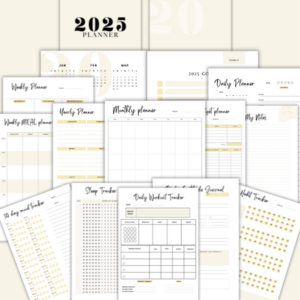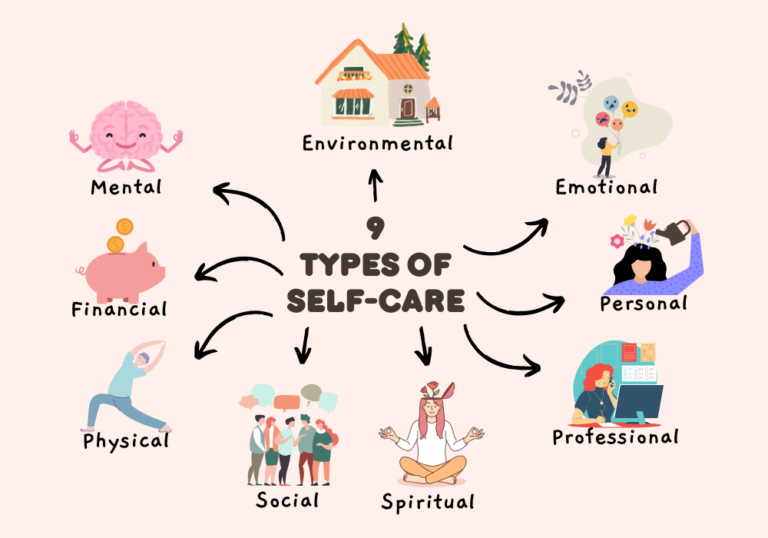Why studying at home is challenging?
Studying at home offers numerous advantages, such as comfort and a relaxed atmosphere. Nonetheless, focusing on your studies at home can be quite challenging due to the abundance of distractions that may entice you to procrastinate. Once you begin, staying on course may prove difficult.
At home, procrastination and a plethora of diversions can hinder your ability to achieve your academic objectives. Temptations including watching television, taking naps, browsing social media, interruptions from family members or pets, engaging in nearby activities, attending to household chores, or dealing with network issues are just a few factors that can impede productivity and draw you away from accomplishing your academic tasks or assignments.
Moreover, In school, numerous distractions are absent. So, how can students, even the most diligent ones, study effectively outside the school setting?
23 Tips For Studying At Home Effectively:
Here are a few simple tips students can follow to stay productive while studying from home. To make the most of your study time during the day and have fun in the evening, give these study suggestions a try.
1-Create a Consistent Routine and Follow It:
Having a routine offers a framework for accomplishing tasks, preventing minor details from being overlooked, and allowing you to plan effectively. Without a routine, you could become easily sidetracked and realize you’ve hardly achieved anything. First and foremost, identify the routine that suits you best; it may not be your innate preference. Be truthful with yourself and understand what works well for you.
Related:13 Tips To Create an Effective Daily Routine
2-Select study space:
Look for a tranquil spot at home, like your bedroom or an extra room. Ensure it has proper lighting (ideally near a window), a comfortable temperature, and a quality chair to maintain focus and good posture. This improves concentration and health, and sufficient space for your computer and study materials. Picking an ideal study area at home truly makes a difference.
3-Always make your study space tidy:
Studies prove that maintaining a tidy space enhances focus and clear thinking. Avoid distractions during study sessions by keeping your workspace organized, allowing you to concentrate more on studying and spend less time searching for a pen that works or any other study materials.
4-Stay Organized:
Staying organized is crucial to success in many aspects of life. Once you establish a routine, having everything organized boosts your motivation for studying. Maintain a well-arranged calendar, either digitally or with traditional pen and paper. Record tasks, projects, exams, and assignments to plan your days effectively and stay focused.
5-Don’t study from your bed:
While you Studying at home It may seem tempting to study from the comfort of your bed, but it is generally not an effective method. Studying in bed can negatively impact both your studying and sleeping habits. Additionally, sitting on your bed while studying can lead to poor posture, decreased focus, and potential long-term health issues. Going to bed after studying in bed won’t provide the same restful feeling that your body needs after a challenging day of studying. It is important to make an effort to study in an environment that allows you to focus and perform at your best.
Related:Sleep Deprivation: Symptoms, Causes, & 10 Effects
6-Have a restful night’s sleep:
Having enough sleep greatly improves concentration levels. People may require different amounts of sleep, but eight hours a night is generally recommended. Allocating enough time for proper rest in your daily schedule is crucial. Consistently getting a good night’s sleep will greatly enhance the effectiveness of your study sessions. Furthermore, maintaining a consistent bedtime routine can prevent drowsiness and mental fatigue during the day, allowing you to focus better while studying.
7-Eat and Hydrate Effectively:
One of the important tips for studying at home is maintaining a healthy diet. Focus on foods that enhance concentration and memory, such as proteins, antioxidants, and omega-3s for an active and healthy brain. After all, you are what you eat. A well-timed, balanced diet brings success in your studies. And don’t forget to drink water regularly!
Your body and brain require fuel to perform their best. It’s challenging to concentrate with a rumbling stomach. So have nutritious snacks while studying, but prepare them beforehand to avoid spending too much time away from your work. The more time away, the more chances for distractions!
8-Get dressed:
Studying at home doesn’t mean staying in pajamas all day or neglecting grooming. But, You should be taking care of yourself and that will improve your outlook on life and studies. It is important to dress up, style your hair, and present yourself confidently every day. This may even boost your motivation levels.
9-Establish clear goals:
Having goals boosts your productivity and motivation. Determine your objectives and note them down. Divide larger monthly goals into smaller, manageable weekly or daily tasks.
10-Locate the most productive time for you:
People’s productivity and focus differ, typically falling into two categories: morning and night individuals. Morning individuals are energized and focused in the early hours, while their concentration diminishes throughout the day. In contrast, night individuals find it easier to study after sunset and feel sharpest during evening hours.
By recognizing your preference, you can arrange your day to optimize study time during your productive hours.
11-Utilize a journal or schedule:
Confidently and efficiently manage your study time using a physical(paper diary) diary or an electronic organizer (digital planner). Be sure to note down vital deadlines and use this tool to monitor your progress as you complete tasks, ultimately simplifying your academic journey.
“All-in-one-digital and printable planner”

12-Know your learning style:
Knowing your preferred way of learning can also enhance your home study sessions. Do you enjoy note-taking, creating mind maps, or explaining to others in the classroom? The top 3 learning styles include:
Visual learners:
As a visual learner, you grasp information through mind maps, graphs, and other visuals. You might like using charts, diagrams, or illustrations to organize information. For written tasks, use colorful sticky notes to revitalize your study area.
Auditory learners:
If you excel at listening to instructions or explaining what you’ve learned, share your knowledge with friends or family members. Teaching them helps reinforce information in your mind.
Hands-on learners:
Also known as kinesthetic learning, this indicates that you learn best by doing. Techniques like making flashcards, using a stress ball while reading, and discussing what you’ve learned with others work well for you.
13-Set a timer for tasks:
If you struggle to focus for a long time try to study in short intervals, such as 25 minutes, rather than an hour or more can improve motivation and offer the satisfaction of taking quick 5-minute breaks in between. It’s essential to avoid getting distracted by social media during these intervals. Consider taking a healthy snack, grabbing a drink, or stepping outside for some fresh air to make the most of your breaks.
14-Set your speed:
Discover your optimal study pace and adapt as needed. Some topics or subjects might be easier for you, allowing faster learning. On the other hand, some may require more time. Take what you need and study confidently at a suitable pace.
15-Take notes:
Taking notes is an effective study method as it helps organize your sessions and aids in retaining information. While taking notes, you’ll identify crucial points to jot down and naturally paraphrase the content in your mind, enhancing your understanding and pinpointing areas that require further study.
16-Develop a Timetable:
Crafting a timetable streamlines your time, schedules breaks, and proves valuable when handling multiple subjects. Note down your routine for easy recall and frequent referral. Set practical limits for daily study time and divide sessions into manageable portions.
Related:25 Tips to Increase Your Productivity as a Student
17-Utilize a Timer:
Employ a timer to maintain time awareness and adhere to your schedule. A timer enhances focus on the current task, encourages commitment until the alarm sounds, and ensures all materials are covered. Most importantly, it makes breaks efficient and guilt-free – you’ve earned it!
18-Use the “Active Studying” Questions strategy:
Active studying questions help concentrate and maintain focus while studying. By asking questions before, during, and after interacting with study materials, you retain more information and stay engaged. This is especially useful when faced with lengthy texts.
|
Before starting |
During the study |
Afterward |
| “What will I learn?” | “Do I comprehend what I just read? If not, what’s unclear?” | “What key points did I learn from this session?” |
| “What do I already know about this topic?” | “How can I rephrase what I learned?” | “What do I still need to review? |
| “What details do I need from this text?” | “Are there any essential keywords or phrases to note? Why are they important?” | “Where can I find clarification if needed?” |
19-Revamp your approach:
Studying at home can make you sometimes feel like you encounter a lack of focus or mental clarity, it can be highly beneficial to modify your current routine. Consider changing your study location if you’ve been in the same spot all day and require a jolt of energy to complete an additional task.
If circumstances permit, try to contemplate altering your surroundings. Assuming you are not restricted to your home, explore alternative study environments such as a cafe or a quiet place in a library.
Another strategy involves varying the tasks at hand. For instance, if your concentration wanes after reading from a textbook for an extended period, you could experiment with viewing an online lecture or summarizing your comprehension of the material thus far in writing. This adaptation keeps the essence of the original message while expanding and simplifying the content with greater confidence.
20-Minimize multitasking:
Studying at home might prove challenging when you start noticing various tasks needing attention around your dwelling. Completing household chores can also serve as a convenient excuse to put off studying when you’re feeling unmotivated. It’s crucial to remember that if you were at school, you wouldn’t be performing these chores. So, don’t allow them to hinder your productivity at home—simply schedule them for appropriate times like before diving into your study session or after wrapping it up.
21-Turn off your computer each evening:
Powering off your computer contributes to establishing a sense of completion. Designate a specific time to conclude your day and disconnect from your screen. Engage in enjoyable activities such as participating in a board game with loved ones, immersing yourself in an intriguing book, or going for a revitalizing stroll. By switching off your computer, you not only secure your work progress but also avoid the perpetual feeling of being in study mode while enhancing your computer’s performance! As altering locations may not always be possible at the end of the study day, it is crucial to adopt alternative approaches to signify the end of daily academic endeavors.
22-Make Time for Physical Activity:
Studying at home allows you to set aside time for physical activities. Neglecting these activities can negatively impact your mental health and overall well-being. To maintain efficiency, it’s crucial to balance your study schedule with regular physical activity. Aim for at least 15 minutes of exercise each day can include walking around the house, stretching, or taking a quick stroll in the garden. These breaks help relax your mind and refresh you for more focused studying.
23-Avoid isolation:
Stepping out while studying at home for extended periods is very important. Try to locate time for friends and socializing. Utilize your breaks to enjoy a short stroll, share a meal with a buddy, or engage in a conversation. These fulfilling breaks can uplift your spirits when boredom or loneliness hits.
Finally:
Studying at home effectively takes time and practice, so don’t fret if motivation is low at first. Keep using the tips and do your best.








